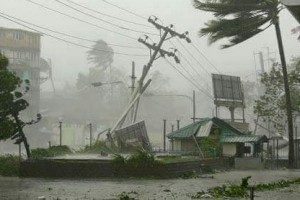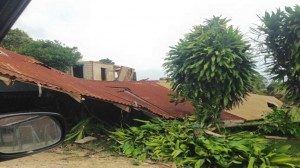Statement Condemning the Police Firing against Farmers in Kidapawan, Mindanao in the Philippines
“Rescue those being led away to death; hold back those staggering toward slaughter” (Proverbs 24:11).
It is with great distress that the Christian Conference of Asia (CCA) has been receiving disturbing news about the violent response and firing of bullets by Police on 6,000 farmers in Kidapawan, North Cotabato, a southern island of Mindanao, on 1 April. It is unfortunate that the legitimate rights of poor farmers, who are demanding appropriate action by the government to provide assistance to the sustenance of farmers in the drought ravaged area, are being ignored. We understand from reliable sources that at least three persons were killed and hundreds of people were wounded while the police opened fire against the protesting farmers, who were insisting for a dialogue with the Governor of the Province, and for 15,000 sacks of rice that were previously promised to them.
It was during the firing against the protestors that the farmers sought refuge in Scottswood Methodist Centre and took sanctuary in the Methodist Church compound. We are deeply disappointed that the Governor’s office has threatened Methodist Bishop Ciriaco Francisco for harboring protestors, and the United Methodist Church with legal action in the form of revoking their legal permit.
The Christian Conference of Asia extends solidarity and prayers to the members and leadership of the United Methodist Church in their continuing protection of some 3,000 farmers and tribal leaders, who were faced with bullets fired on them by the Philippine National Police on 1 April 2016.
While CCA condemns this violent response to the protesting farmers, we applaud the efforts of the United Methodist Church in their perseverance in sheltering the farmers and tribal leaders as they continue their struggle for rightful sustenance. It is a known factor that the lumad farmers in the area have been continuously faced with discrimination and persecution. There is no justification for violent oppression as response to the legitimate demands of farmers for their right to food and livelihood.
On behalf of CCA, I convey our prayerful regards to Bishop Ciriaco Francisco and express our solidarity with the United Methodist Church at this time of their travail. We join hands with those who are struggling for basic human rights and justice, and urge the government and provincial authorities to provide adequate provisions and security to the farmers, who are legitimately registering their concerns. We pray and hope that peace with justice will prevail in the area and rights and dignities of the persecuted farmers involved in the struggle will be upheld. We appreciate the commitment of those who are demonstrating the values of the love of Jesus Christ and the biblical spirit of compassion, as has been shown by the United Methodist Church in sheltering the wounded and unprotected: “Rescue those being led away to death; hold back those staggering toward slaughter” (Proverbs 24:11).
Mathews George Chunakara
General Secretary
Letter originally published by The Christian Conference of Asia of which the Uniting Church in Australia is a member



 Over the past two years, UnitingWorld has worked with our partner churches, Indonesia Christian Church (GKI) and Evangelical Church in the Land of Papua (GKI-TP) to form a three-way partnership. The partnership is designed to improve the quality of Christian education in two provinces of Papua and West Papua.
Over the past two years, UnitingWorld has worked with our partner churches, Indonesia Christian Church (GKI) and Evangelical Church in the Land of Papua (GKI-TP) to form a three-way partnership. The partnership is designed to improve the quality of Christian education in two provinces of Papua and West Papua.

 You can find out how to SPEAK UP for responsible environmental policies by checking out the work of our partner here in Australia,
You can find out how to SPEAK UP for responsible environmental policies by checking out the work of our partner here in Australia,  The committee, which is made up of key leaders from the church’s i-Taukei-speaking, English and Hindi-speaking divisions and includes leaders from Women’s and Youth fellowships, is assessing the impact of Tropical Cyclone Winston, developing immediate, short, medium and long-term relief responses and channelling overseas partner support to appropriate church and government relief and resilience programmes.
The committee, which is made up of key leaders from the church’s i-Taukei-speaking, English and Hindi-speaking divisions and includes leaders from Women’s and Youth fellowships, is assessing the impact of Tropical Cyclone Winston, developing immediate, short, medium and long-term relief responses and channelling overseas partner support to appropriate church and government relief and resilience programmes.